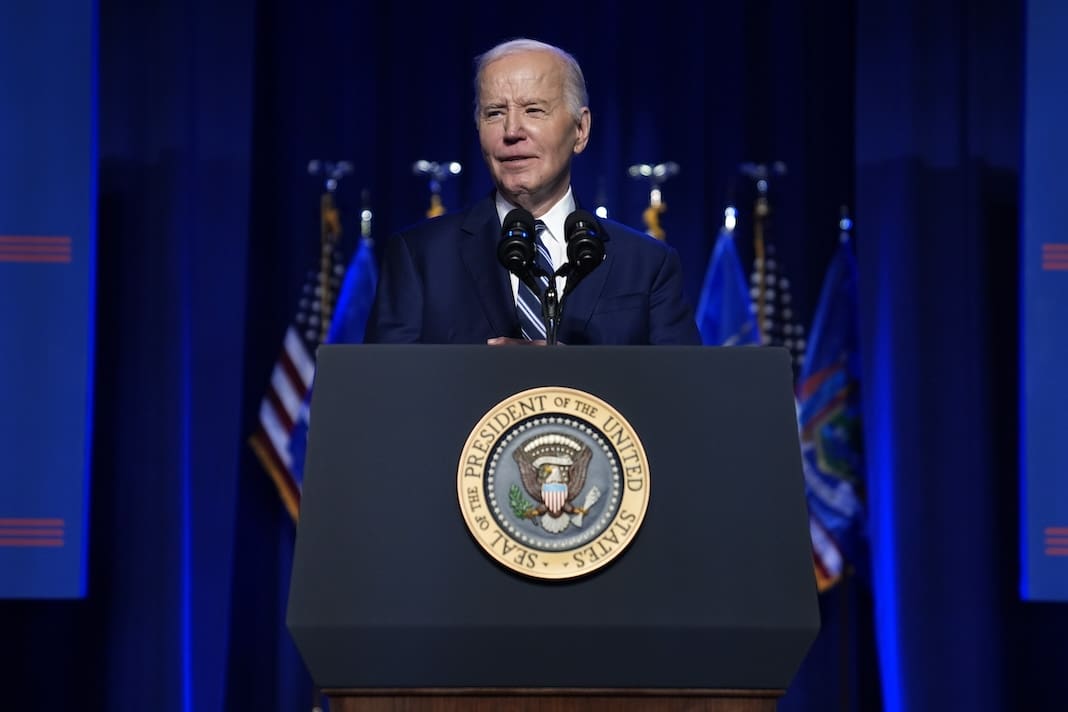Rep. Scott Perry files bills to block Biden’s clean energy efforts
The Pennsylvania Republican wants to take away administration authority to accelerate domestic production of electric vehicles and solar panels.

Pennsylvania Republican U.S. Rep. Scott Perry filed a pair of bills on March 8 that would block President Joe Biden’s administration from using a key tool to boost production of solar panel and electric vehicle technologies.
The United Nations Intergovernmental Panel on Climate Change released a report in August 2021 warning that climate change was already doing significant harm to the planet and that without immediate action, public health will be severely threatened. U.N. Secretary-General Antonio Guterres called the findings a “code red for humanity.”
Biden has focused much of his efforts as president on investing in clean energy technologies that will both curb the production of greenhouse gas emissions and lower costs for consumers. His 2022 Inflation Reduction Act and his bipartisan 2021 Infrastructure Investment and Jobs Act included significant investments to make clean energy more affordable and available in Pennsylvania.
In June 2022, Biden used his authority under the Defense Production Act to allow the U.S. Department of Energy to speed up domestic production of solar technologies, transformers and electric grid components, heat pumps, insulation, electrolyzers, fuel cells, and platinum group metals in the name of strengthening national security. The 1950 law gives the president broad authority over domestic industries that affect national defense and allows the federal government to invest in their efforts.
Perry’s bills, if enacted, would strip that authority from Biden and future presidents.
A spokesperson for Perry’s office did not respond to an inquiry about the bills. On March 30, 2023, however, he attempted to do the same thing through a proposed amendment to the Lower Energy Costs Act, a fossil fuel industry-backed Republican bill to roll back environmental protections, boost oil and gas drilling, and increase mining.
“This amendment specifically excludes the Defense Production Act projects related to solar panel and EV projects from that preferential treatment,” Perry told his colleagues in a floor speech. “This amendment does not alter the actual authorities provided in the Defense Production Act; it just says that the administration—any administration—can’t get special treatment for projects that have absolutely nothing to do with national security. Solar energy is often unreliable and cannot compete without subsidies. EVs cannot compete in the competitive market without subsidies.”
“This amendment is a blatant attack on clean energy infrastructure,” answered Arizona Democratic Rep. Raul Grijalva.
Contrary to Perry’s claims, the Pentagon warned in October 2021 that climate change was undermining U.S. national defense, specifically noting that water and food shortages around the globe would cause friction among countries and spur more frequent cyber and physical terrorist attacks by unknown third parties. Military experts told the Washington Post in 2023 that electric vehicles have strategic value on the battlefield because they are harder to detect and require less fuel than fossil-fuel vehicles.
Two hundred of Perry’s Republican colleagues joined him in voting for the amendment. With 208 Democratic representatives and 22 Republicans voting no, it failed 201-230.
Perry’s 10th Congressional District includes Harrisburg and surrounding areas.
Updated 3-18-24: A spokesperson for Perry sent the following comment after publication:
“Americans are so opposed to expensive, unreliable, ‘green’ energy solutions – that President Biden must invoke the DPA to get companies to produce solar panels and electric vehicles,” said Rep. Perry. “Exploiting the DPA to flood the market with cars that don’t work in the cold and energy sources that don’t work in the shade does nothing to help the American People and our businesses – let alone national security.”




